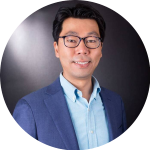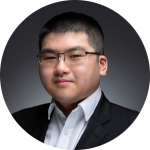| Speaker(s) |
 | Professor Heiwai Tang, Director, Asia Global Institute; Victor and William Fung Professor in Economics, Associate Vice President (Global), University of Hong Kong Heiwai Tang is the Victor and William Fung Professor in Economics at the University of Hong Kong (HKU), where he also serves as Director of the Asia Global Institute, Associate Vice President (Global), and Associate Dean for External Relations at the Business School. Before joining HKU, he was a tenured Associate Professor of International Economics at the School of Advanced International Studies (SAIS) of Johns Hopkins University. He is affiliated with the Center of Economic Studies and Ifo Institute (CESifo) in Germany, the Asian Bureau of Finance and Economic Research (ABFER) in Singapore, the Kiel Institute for the World Economy in Germany, and the Globalization and Economic Policy (GEP) Center in the U.K. as a research fellow. Tang has consulted for organizations such as the World Bank, the International Finance Corporation, the United Nations, and the Asian Development Bank. He has also held visiting positions at the International Monetary Fund (IMF), Stanford University, the Massachusetts Institute of Technology (MIT), and Harvard University. He has previously served as the Managing Editor of the Pacific Economic Review and as an Associate Editor for the Journal of International Economics, the Journal of Comparative Economics, and the China Economic Review. Since 2021, he has been involved with several public and regulatory bodies in Hong Kong SAR, including the Currency Board Sub-Committee of the Hong Kong Monetary Authority’s Exchange Fund Advisory Committee, the Industry Advisory Committee of the Insurance Authority, the Securities and Futures Appeals Tribunal, the Land and Development Advisory Committee, and the Minimum Wage Commission, among others. Heiwai holds a Ph.D. in economics from MIT and a Bachelor of Science in mathematics from UCLA. His research interests span a wide range of theoretical and empirical topics in international trade, with a specific focus on production networks, global value chains, and China. His research has been published in leading economics journals, including the American Economic Review and the Journal of International Economics. His research and opinions have been featured in the BBC, Bloomberg, China Daily, CNA, CNN, Financial Times, New York Times, Al Jazeera, Foreign Policy, South China Morning Post, and various think tanks, including the Brookings Institution and the Peterson Institute for International Economics. |  | Professor Brian Wong, Rhode Scholar; Assistant Professor in Philosophy, University of Hong Kong Brian is a political theorist and geopolitical strategist whose research examines authoritarian regimes and citizens’ normative responsibilities, colonial and historical injustices, and the interaction between domestic politics and foreign policy of states in East Asia, especially China. He has taught modules in politics to undergraduate students at Oxford and Stanford Universities, and has delivered keynote speeches across the campuses of universities such as LSE, Harvard-Science Po, Carnegie-Tsinghua, Tsinghua, and Tufts. He co-founded and advises Oxford Political Review, a publication aspiring to bridge the theory-practice gap. As the Chief Strategy Officer of the HK-ASEAN Foundation, he advises multi-national corporations, family offices, and leading think-tanks on geopolitical affairs and macro risks throughout Asia. Having co-founded and served as the inaugural Editor-in-Chief at the Oxford Political Review, a publication aspiring to bridge the theory-practice gap, Brian serves as a columnist at the Hong Kong Economic Journal. His writings on Chinese political economy, Asian geopolitics, and public philosophy have been feature in publications such as TIME, Foreign Policy, Aeon, Financial Times, Diplomat, Fortune, The Hindu, South China Morning Post, Nikkei, Japan Times, and the US-Asia Law Institute. Brian is a Hong Kong Rhodes Scholar (2020). He obtained his DPhil in Politics at Balliol College, Oxford University. He holds an MPhil in Political Theory (Distinction) from Wolfson College, Univrsity of Oxford, and an MA in Philosophy, Politics, and Economics (First Class) from Pembroke College, University of Oxford, with the latter being funded in full by a Kwok Scholarship. |
|